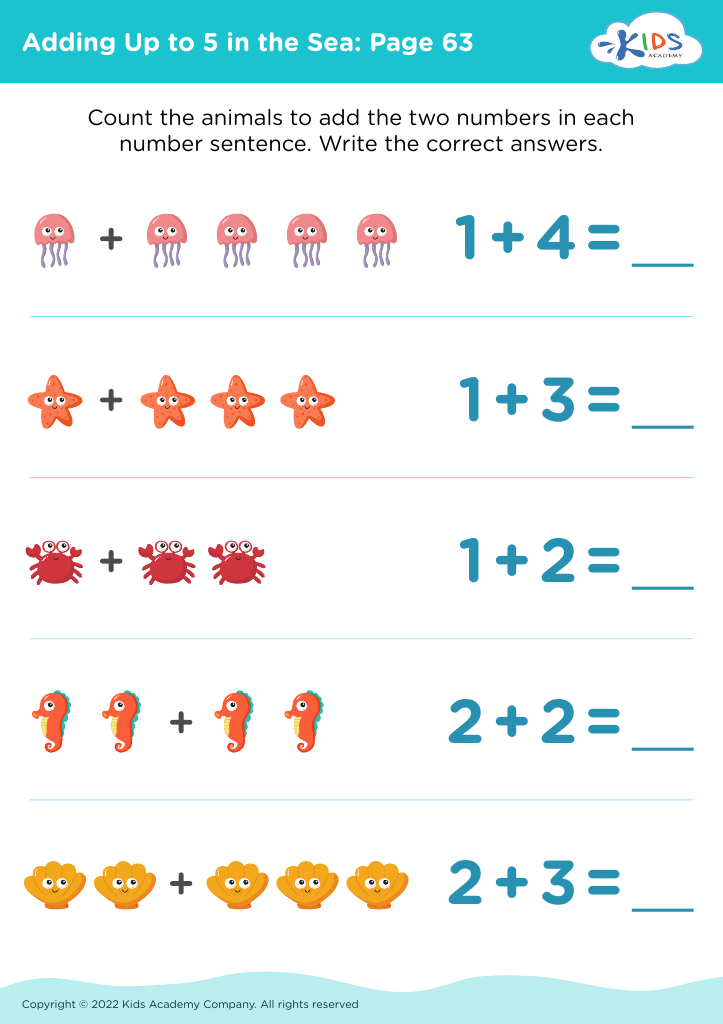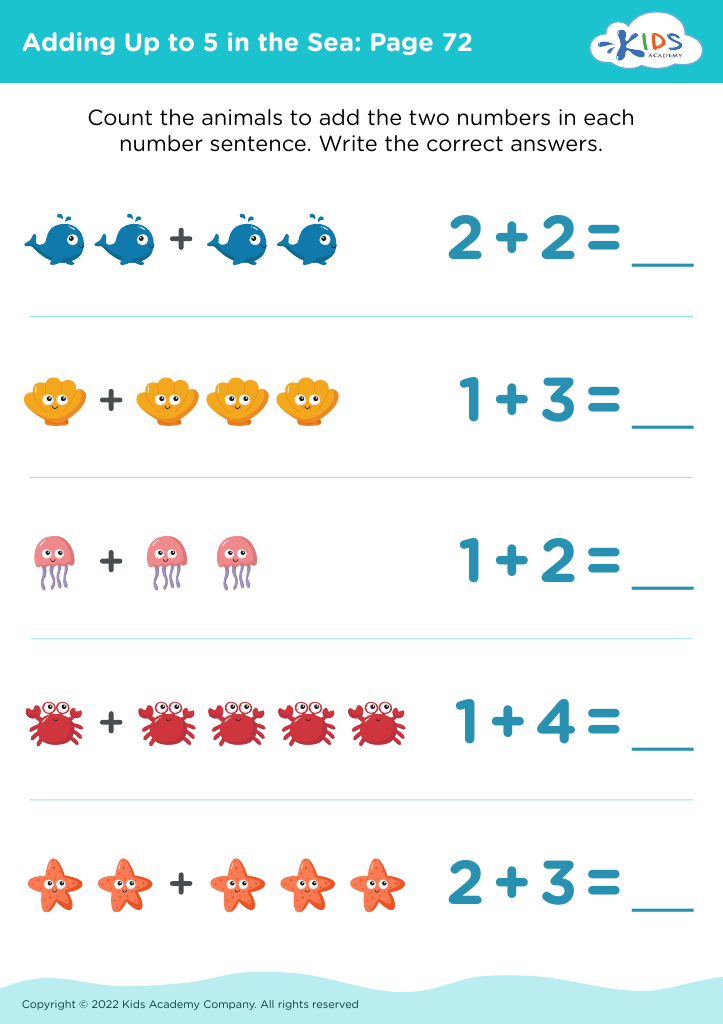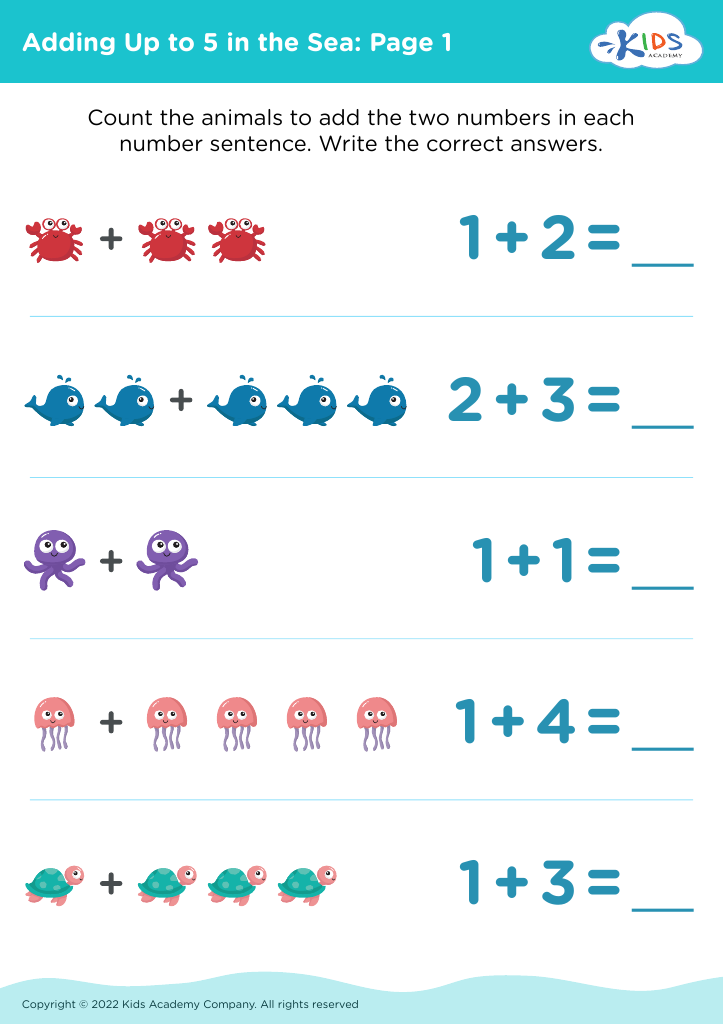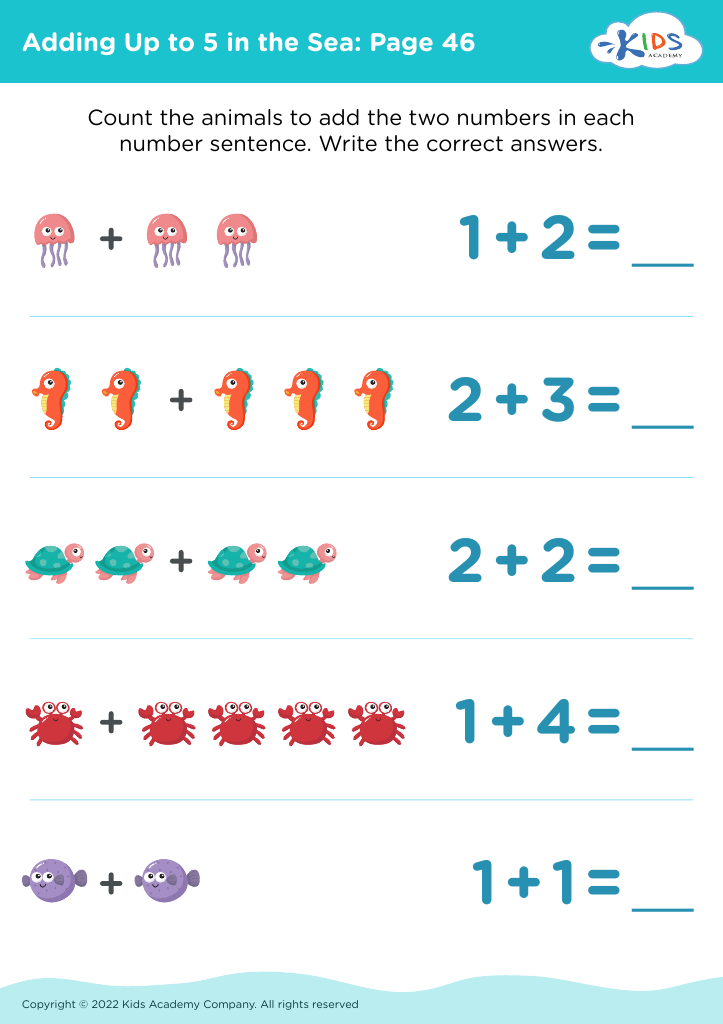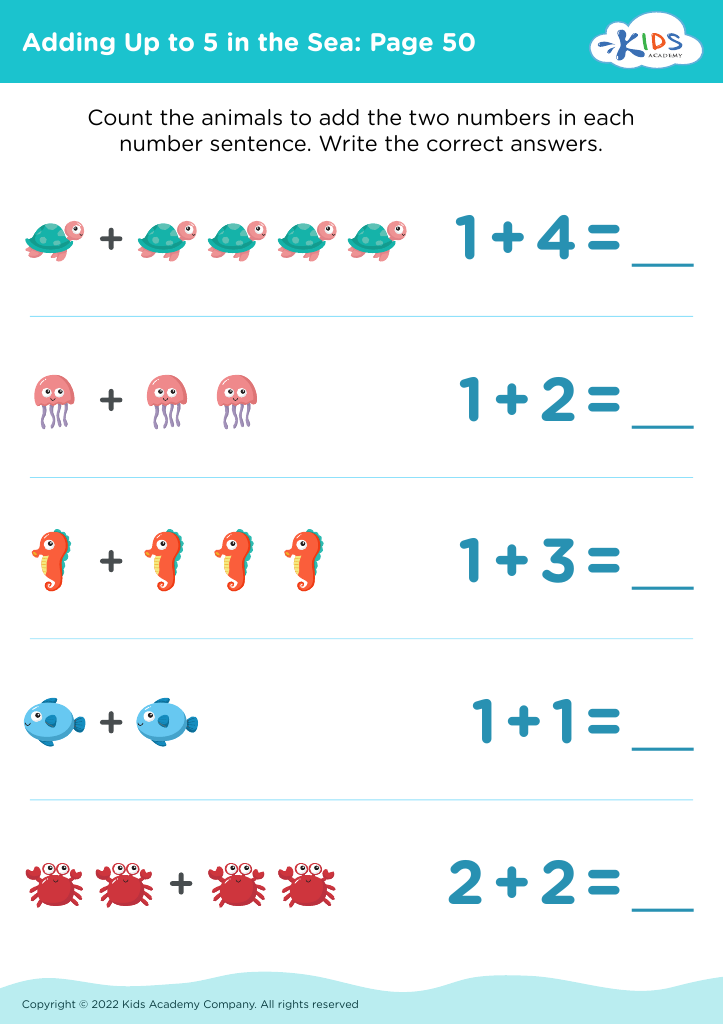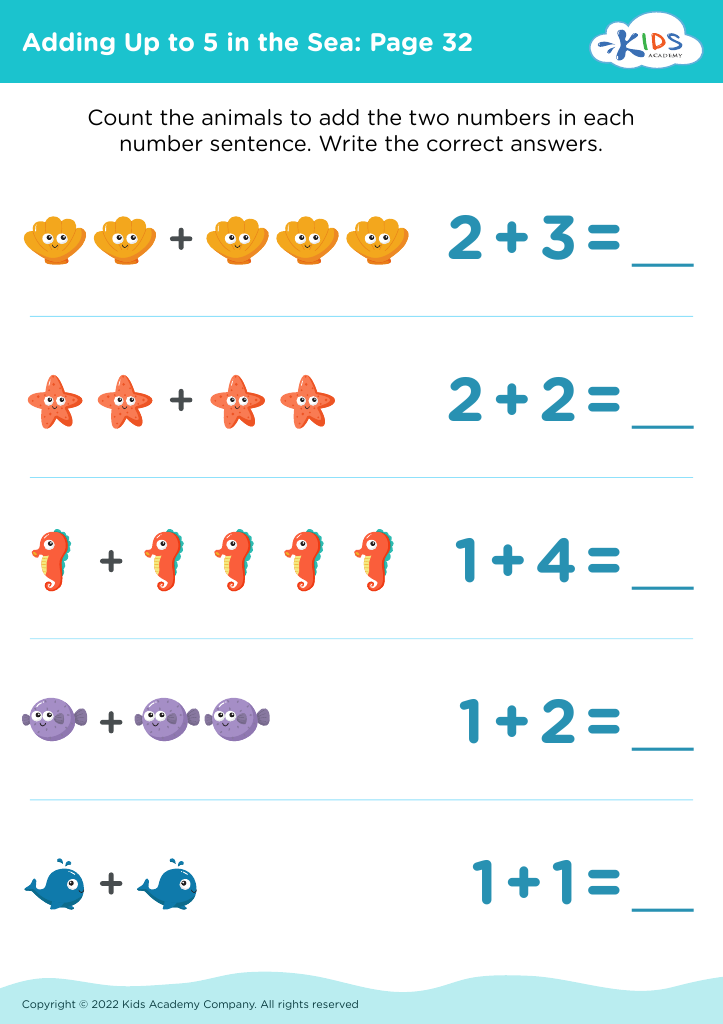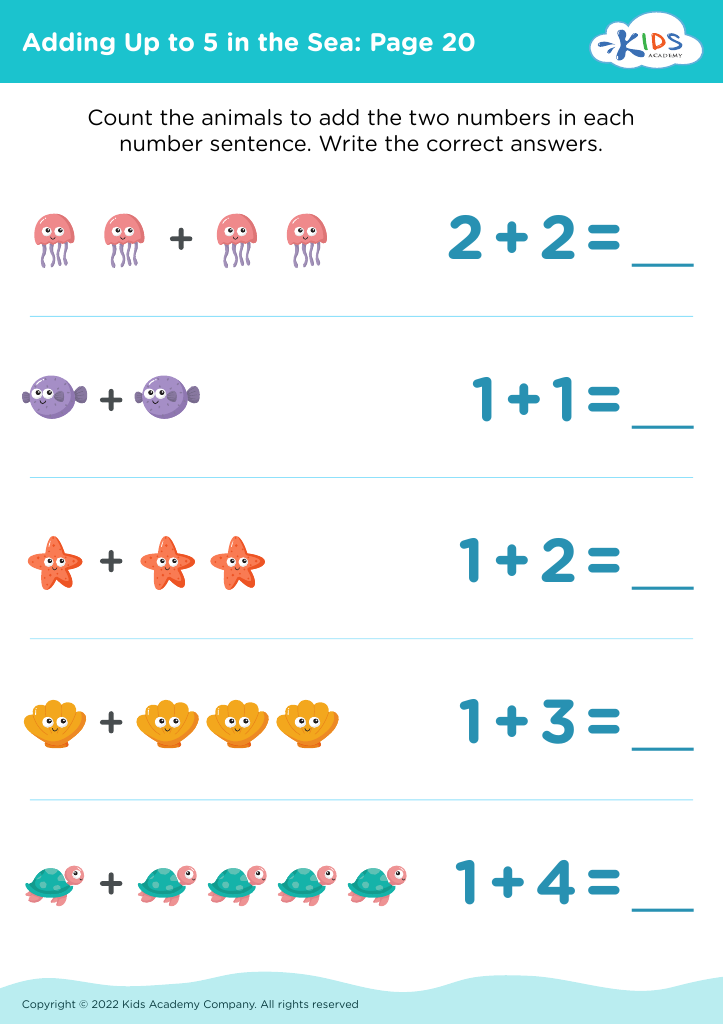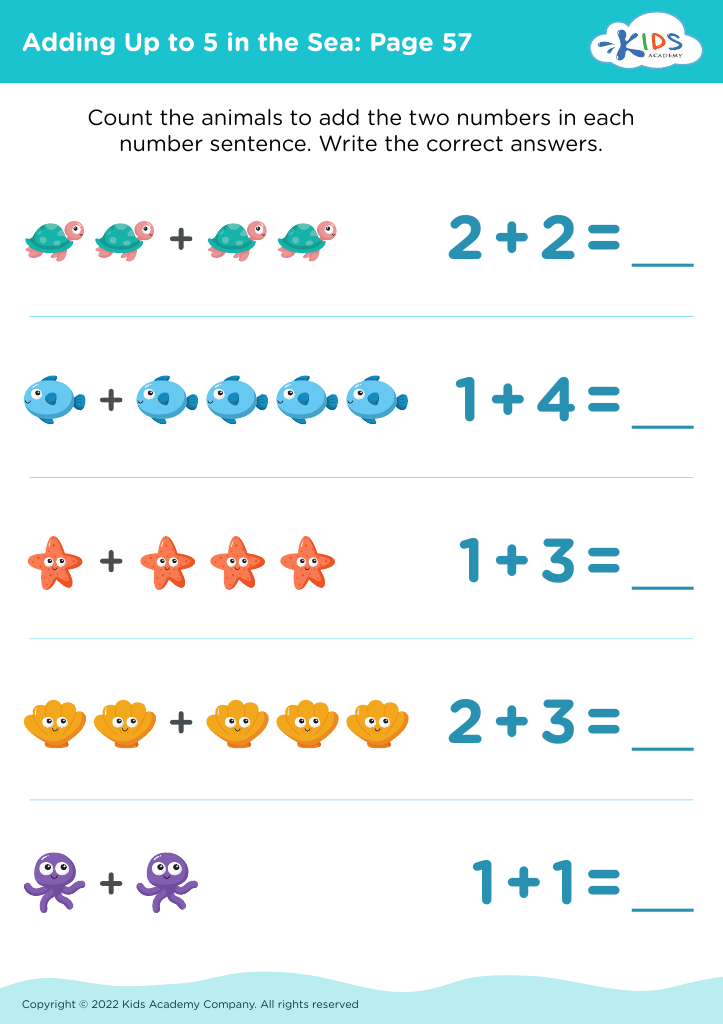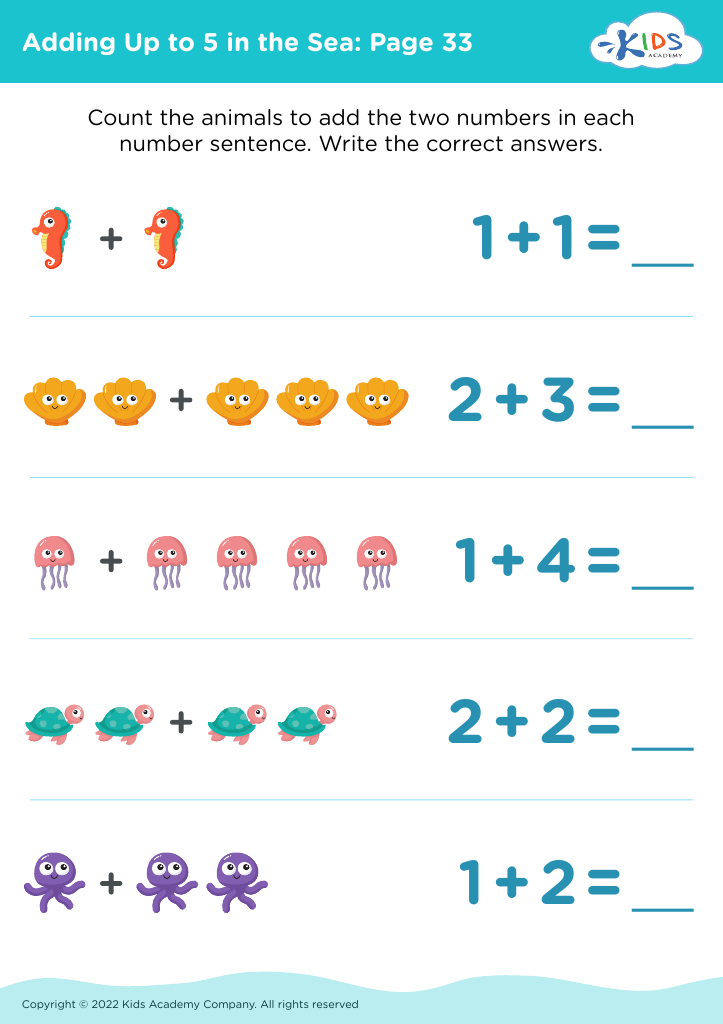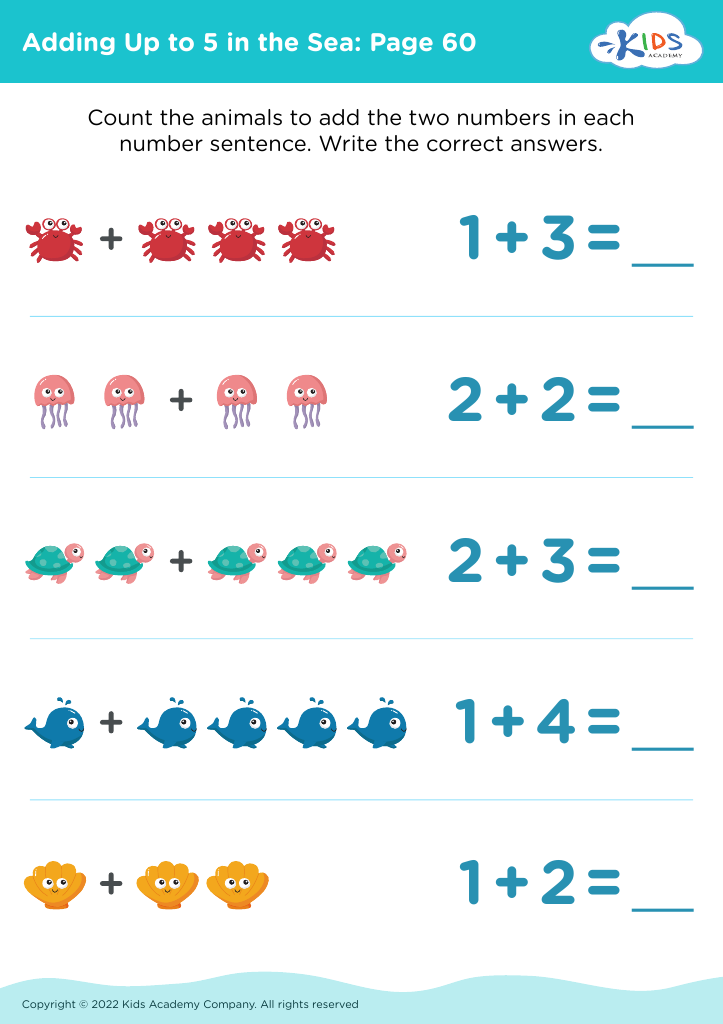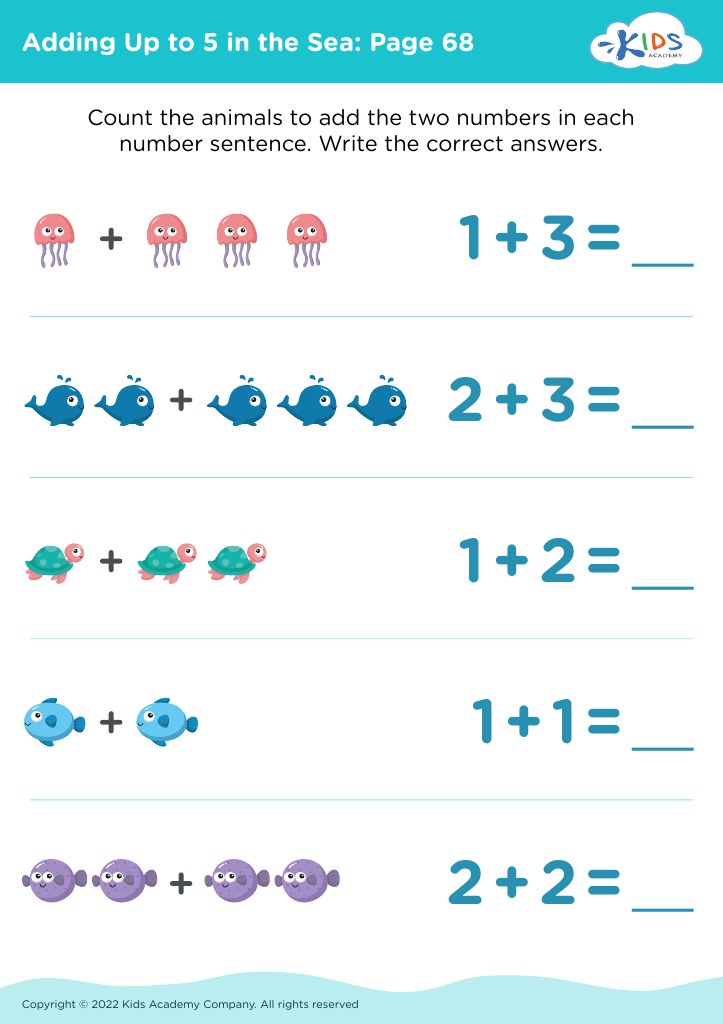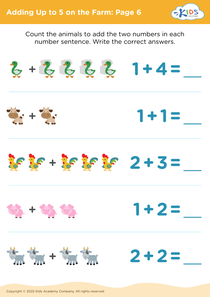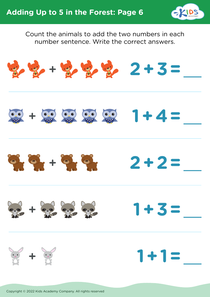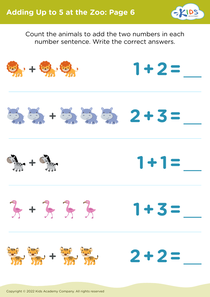Understanding Quantities Adding in the Sea Worksheets for Ages 5-8
11 filtered results
-
From - To
Dive into a sea of fun with our "Understanding Quantities Adding in the Sea" worksheets designed for ages 5-8. These engaging activities help children grasp essential math concepts while exploring an underwater world filled with colorful ocean creatures. Tailored to enhance understanding of quantities and addition, each worksheet encourages young learners to count, sum, and enjoy their mathematical journey. Perfect for both classroom and home use, our worksheets connect creativity with education, fostering a love for math through interactive and visually appealing exercises. Equip your little ones with the skills they need to excel in math, one sea adventure at a time!
Understanding quantitative concepts, especially through engaging themes like "Adding in the Sea," is crucial for children aged 5-8, as this is a foundational learning period. At this age, kids are incredibly impressionable and are just beginning to grasp the basics of arithmetic. By introducing addition within an intriguing and relatable context like the ocean, we make learning enjoyable, which can foster a love for math instead of fear or disinterest.
Incorporating sea-themed elements helps connect abstract numbers to real-world concepts. Children can visualize adding fish, seashells, or starfish, making the idea of addition concrete and understandable. This thematic approach aids in cognitive development by enhancing memory retention through contextual learning.
Moreover, early mastery of adding quantities sets the groundwork for more advanced mathematical concepts. Proficiency in addition leads directly to understanding subtraction, multiplication, and division, all of which depend on a solid grasp of basic arithmetic.
For parents and teachers, supporting early numerical literacy extends beyond academics. The skills learned from such activities improve problem-solving abilities, critical thinking, and confidence. Beyond preparing children for future mathematics education, these skills are essential for everyday life and future success. Therefore, investing time and resources to make learning quantitative concepts fun and relatable is invaluable.
